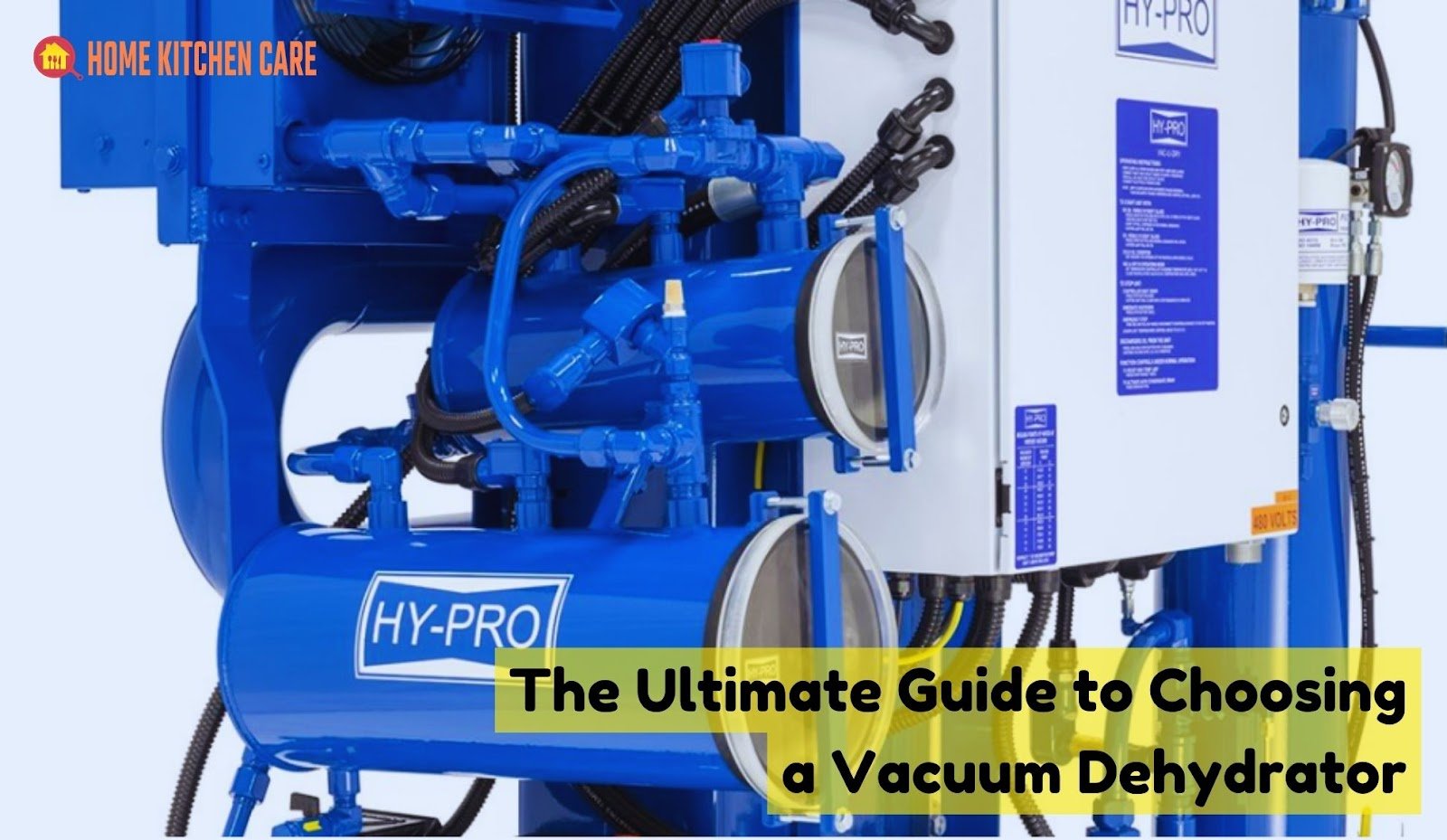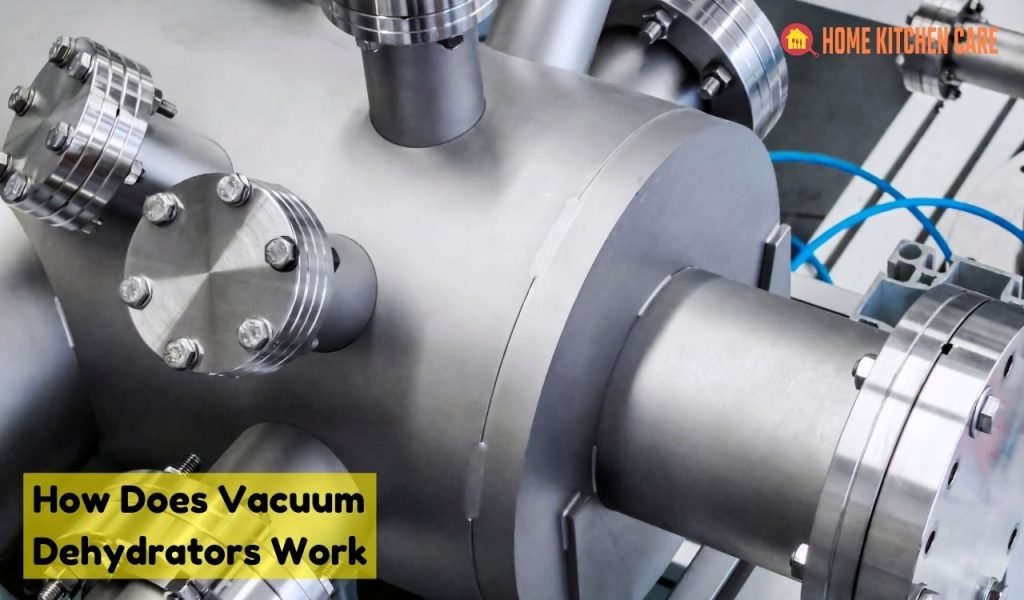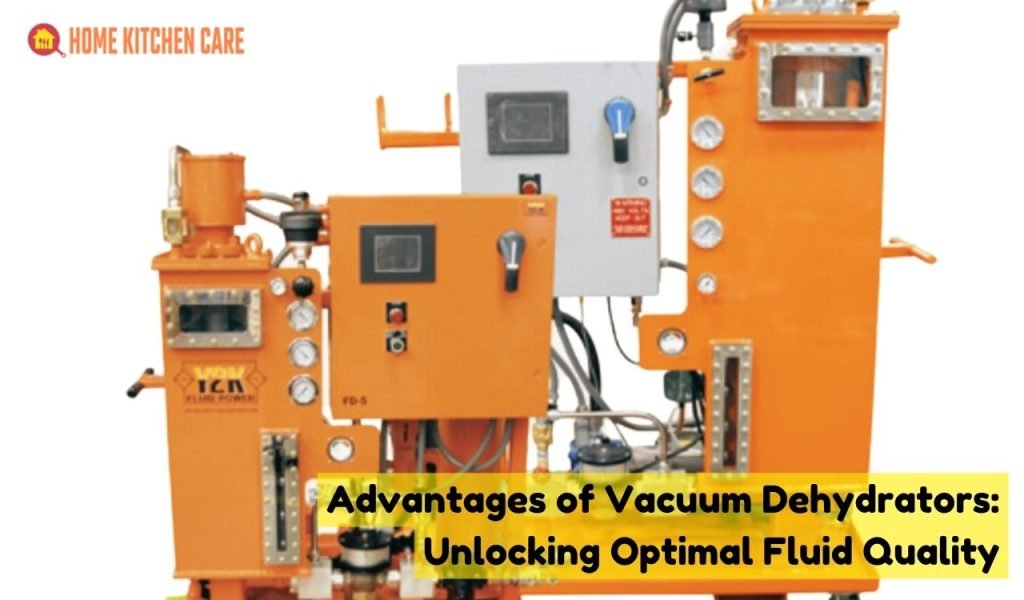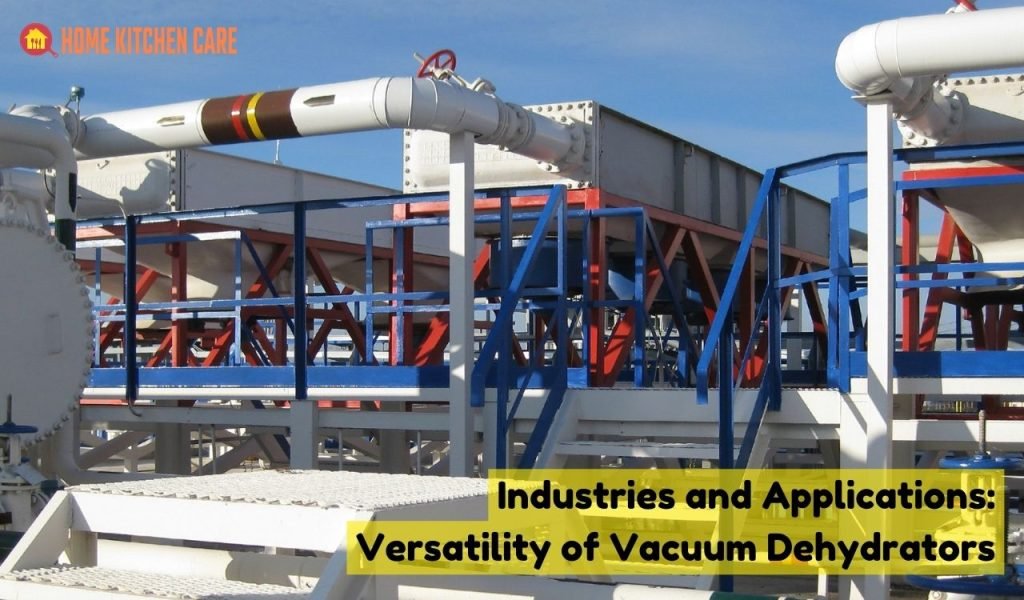Physical Address
304 North Cardinal St.
Dorchester Center, MA 02124
Physical Address
304 North Cardinal St.
Dorchester Center, MA 02124

Are you tired of dealing with moisture and contaminants in your fluids? Say hello to the game-changer: the Vacuum Dehydrator. This powerful device is your ultimate solution for removing water and impurities from various fluids, such as oils, lubricants, and hydraulic fluids. With its cutting-edge technology and efficiency, the Vacuum Dehydrator guarantees purified and high-performing fluids that will revolutionize your operations.
No more worrying about equipment corrosion, fluid breakdown, or compromised performance. Say goodbye to costly maintenance and hello to enhanced productivity. In this guide, we’ll dive into the world of Vacuum Dehydrators, exploring their working principles, advantages, and how to choose the right one for your needs. Get ready to unlock the potential of your fluids with the remarkable Vacuum Dehydrator.
Main Summary: Vacuum Dehydrator.
The Vacuum Dehydrator is a cutting-edge technology designed to efficiently eliminate moisture and contaminants from various fluids, ensuring peak equipment performance and extending its lifespan. Say goodbye to moisture-related issues with this top-tier solution!
A vacuum dehydrator is a specialized device designed to eliminate moisture and contaminants from fluids. It operates by creating a vacuum environment that lowers the boiling point of water, allowing for efficient evaporation. This process helps remove water vapor and volatile impurities from the fluid, resulting in purified and dehydrated fluid.
Vacuum dehydrators are commonly used in various industries to enhance the performance and longevity of equipment by reducing the risk of corrosion, fluid breakdown, and compromised functionality. They play a crucial role in maintaining fluid quality and ensuring optimal system operation.
Vacuum Dehydrators come equipped with a range of features that make them a versatile and efficient solution for dehydration purposes. Let’s explore some key features commonly found in these powerful machines:

Now that we have explored the key features, let’s unravel the inner workings of Vacuum Dehydrators. Here’s a step-by-step breakdown of how these remarkable machines operate:
Just like any other piece of machinery, proper maintenance and care are vital for the longevity and efficient operation of Vacuum Dehydrators. Here are some key maintenance tips to keep in mind:
By following these maintenance practices, you can prolong the life of your Vacuum Dehydrator and ensure its continuous performance in purifying industrial fluids.

Now, let’s explore the advantages that Vacuum Dehydrators bring to the table, revolutionizing fluid purification processes in various industries:
To ensure the Vacuum Dehydrator is effectively purifying the fluid, it’s essential to measure its performance. Here are some methods to gauge the effectiveness of your Vacuum Dehydrator:
By implementing these measurement techniques, you can ensure that your Vacuum Dehydrator is operating optimally and delivering the desired results in fluid purification.

Vacuum Dehydrators find applications across various industries where fluid purification and moisture removal are paramount. Let’s explore some of the industries and applications that benefit from the versatility of Vacuum Dehydrators.
In the oil and gas industry, Vacuum Dehydrators play a crucial role in maintaining the quality of lubricating oils, hydraulic fluids, and transformer oils. By removing water and contaminants, Vacuum Dehydrators ensure smooth operation, reduce the risk of equipment failure, and prolong the life of critical components. These machines are particularly vital in offshore drilling operations, where exposure to seawater poses additional challenges.
In power generation facilities, Vacuum Dehydrators help maintain the integrity of turbine oils, insulating fluids, and transformer oils. By eliminating moisture and contaminants, these machines contribute to the efficient functioning of turbines, generators, and transformers. The removal of water and impurities reduces the risk of electrical breakdowns, improves heat transfer capabilities, and extends the operational life of equipment.
Vacuum Dehydrators find applications in various manufacturing and industrial processes, such as metalworking, plastics production, and chemical processing. By purifying cutting fluids, coolants, and process fluids, Vacuum Dehydrators enhance the efficiency and effectiveness of these processes. They contribute to improved product quality, reduced machine downtime, and increased productivity.
In the food processing and beverage industry, Vacuum Dehydrators play a critical role in maintaining the quality and shelf life of products. By removing moisture from oils, sauces, and other liquid ingredients, these machines prevent microbial growth, reduce the risk of spoilage, and extend the product’s freshness. Vacuum Dehydrators also contribute to enhanced flavor retention and overall product quality.
When selecting a Vacuum Dehydrator for your specific application, several factors should be taken into consideration:
Vacuum Dehydrators offer a versatile and effective solution for fluid purification and moisture removal across a wide range of industries and applications. Whether in the oil and gas industry, power generation, manufacturing processes, or food processing, these machines contribute to enhanced performance, improved product quality, and increased equipment reliability.
By considering key factors when choosing a Vacuum Dehydrator, you can ensure that you select the right machine for your specific needs. Embrace the power of Vacuum Dehydrators and experience the transformative benefits they bring to your industry.
The working principle of a vacuum oil purifier involves creating a vacuum environment within the system. By lowering the pressure, the boiling point of water decreases, facilitating the evaporation of moisture. The vacuum effectively removes water and contaminants from the oil, leaving behind purified and dehydrated oil.
The process of oil dehydration in a vacuum dehydrator involves several steps. First, the oil is heated to raise its temperature, which aids in water evaporation. As the temperature increases, the vacuum dehydrator creates a vacuum environment, lowering the boiling point of water. This causes water and other volatile contaminants to evaporate and be drawn out of the system. The dehydrated oil is then collected for reuse or further processing.
The duration of the moisture removal process in a vacuum dehydrator depends on several factors, such as the initial moisture content of the oil, the flow rate, and the size and efficiency of the dehydrator. Generally, the process can take anywhere from a few hours to several days. It is important to allow sufficient time for the dehydrator to effectively remove moisture and ensure optimal dehydration.
The energy requirements of a vacuum dehydrator can vary depending on its size, capacity, and the specific operating conditions. Larger dehydrators with higher flow rates and greater processing capacity may require more energy to maintain the desired temperature and create the vacuum environment. It is recommended to refer to the manufacturer’s specifications and consult with experts to determine the energy requirements of a specific vacuum dehydrator model.
Yes, vacuum dehydrators can be suitable for small-scale operations as well. Manufacturers offer a range of vacuum dehydrator models with varying capacities to accommodate different processing needs. It is important to select a dehydrator that aligns with the size and requirements of the specific small-scale operation. Consulting with experts and considering the flow rate and desired processing volume will help determine the appropriate vacuum dehydrator for small-scale applications.
Vacuum dehydrators find applications in various industries. They are commonly used in the oil and gas industry to purify lubricating oils and hydraulic fluids. They are also prevalent in power generation facilities for maintaining the quality of transformer oils and insulating fluids. Additionally, vacuum dehydrators are used in manufacturing processes, food processing, and beverage industries to ensure fluid purity and product quality.
Choosing the right vacuum dehydrator involves considering factors such as flow rate requirements, fluid compatibility, filtration efficiency, maintenance needs, and cost. Assess your specific needs, consult with experts, and select a vacuum dehydrator that aligns with your flow rate, fluid type, and desired filtration capabilities. It’s important to choose a reliable and reputable manufacturer to ensure the quality and performance of the vacuum dehydrator.